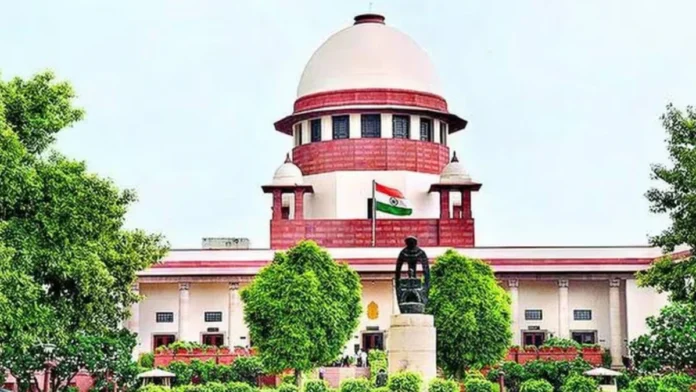In March, the Allahabad High Court annulled a 2004 law that regulated Islamic schools, known as madrasas.
NEW DELHI (Reuters) – In a significant ruling on Tuesday, India’s Supreme Court overturned an order that had effectively banned the operation of Islamic schools, or madrasas, in Uttar Pradesh, the most populous state in the country. This judgment has provided much-needed relief to thousands of students and teachers who depend on these institutions for education and employment.
The Supreme Court’s intervention came after the Allahabad High Court’s decision in March to strike down a 2004 law that governed the regulation of madrasas. The High Court had argued that this law conflicted with the constitutional principle of secularism and mandated the transfer of all madrasa students to conventional government schools. This decision had created widespread concern within the Muslim community and among educational rights activists who viewed it as a move that threatened religious and cultural education.
The Importance of the Supreme Court’s Ruling
By overturning the March decision, the Supreme Court has allowed approximately 25,000 madrasas in Uttar Pradesh to continue functioning, impacting the education of around 2.7 million students and the livelihoods of nearly 10,000 teachers. This judgment underscores the court’s acknowledgment of the diverse educational needs of minority communities and the state’s role in supporting such initiatives.
Chief Justice D.Y. Chandrachud, who presided over the case, emphasized that the 2004 law aligned with the state’s obligation to ensure that children receive adequate education. “The act is consistent with the positive obligation of the state to ensure that the children get adequate education,” he stated during the court proceedings. His remarks highlighted the balancing act between upholding secular values and protecting minority rights to educational and cultural practices.
The Context of the High Court’s March Order
The Allahabad High Court’s ruling in March was rooted in its interpretation of secularism as defined by the Indian Constitution. It contended that the regulation of Islamic educational institutions was problematic and that their integration into the broader public education system would serve a secular purpose. However, this perspective drew criticism for potentially infringing on religious freedoms and limiting the space for minority education.
The High Court’s directive to transfer madrasa students to conventional schools sparked fears that traditional Islamic education would be eroded, affecting not only academic learning but also religious and cultural identity. Many stakeholders saw this as an encroachment on the right of Muslims to maintain institutions that reflect their values and teachings.
Broader Implications for the Muslim Community
The Supreme Court’s decision has provided a significant sense of reassurance to the Muslim community, which has long relied on madrasas for providing not just religious but also basic education in areas where government schools may be sparse or less accessible. The ruling is viewed as an affirmation of the right of religious communities to establish and administer their educational institutions, as protected under Article 30 of the Indian Constitution.
The BJP-led state government, under the administration of Prime Minister Narendra Modi, has previously faced criticism from human rights organizations and Muslim leaders for initiatives perceived as marginalizing the Muslim population. For instance, in Assam, a northeastern state also governed by the Bharatiya Janata Party, hundreds of madrasas have been converted into conventional schools, raising concerns about a broader pattern of undermining Islamic education.
Muslim community leaders and rights groups argue that such measures, combined with instances of anti-Islamic rhetoric and property demolitions allegedly targeted at Muslims, contribute to a climate of insecurity and discrimination. Although the government has consistently denied accusations of religious bias, asserting that its development policies benefit all citizens equally, the perception among many Muslims is different.
Challenges and Future Outlook
While the Supreme Court’s ruling on the status of madrasas in Uttar Pradesh represents a pivotal moment, challenges remain. The state government has yet to respond publicly to the Supreme Court’s decision, leaving questions about its next steps in terms of compliance and policy direction. The broader educational landscape for Muslim students in India continues to be shaped by the tug-of-war between state-led educational standardization and community-led religious schooling.
There is also the practical consideration of how madrasas can balance religious and modern education to prepare students for broader opportunities. Some madrasas have already adopted a dual curriculum, offering both religious studies and conventional subjects such as science, mathematics, and languages to ensure their students are well-equipped for contemporary challenges.
Education experts and advocates stress the importance of government support in enhancing the quality of education provided by madrasas, suggesting that any reform should focus on collaboration rather than confrontation. The aim should be to enrich educational standards while preserving the unique cultural and religious characteristics of these institutions.
Conclusion
The Supreme Court’s decision to reinstate the 2004 law and allow madrasas in Uttar Pradesh to operate as they did prior to the March ruling is seen as a victory for educational and minority rights. It demonstrates a nuanced understanding of the need to uphold secularism while respecting the constitutional rights of religious communities to self-governance in education.
For the 2.7 million students and 10,000 teachers whose futures were in limbo, this ruling provides not only immediate relief but also reaffirms their place within India’s complex tapestry of religious and educational diversity. The coming months will reveal how the state government will react to this legal reversal and whether it will adopt a cooperative approach toward integrating madrasas more seamlessly into the broader education system.
As India continues to navigate the intersection of education, secularism, and religious freedom, this case serves as a reminder of the ongoing need to strike a balance that respects the nation’s pluralistic ethos while advancing opportunities for all its citizens.


